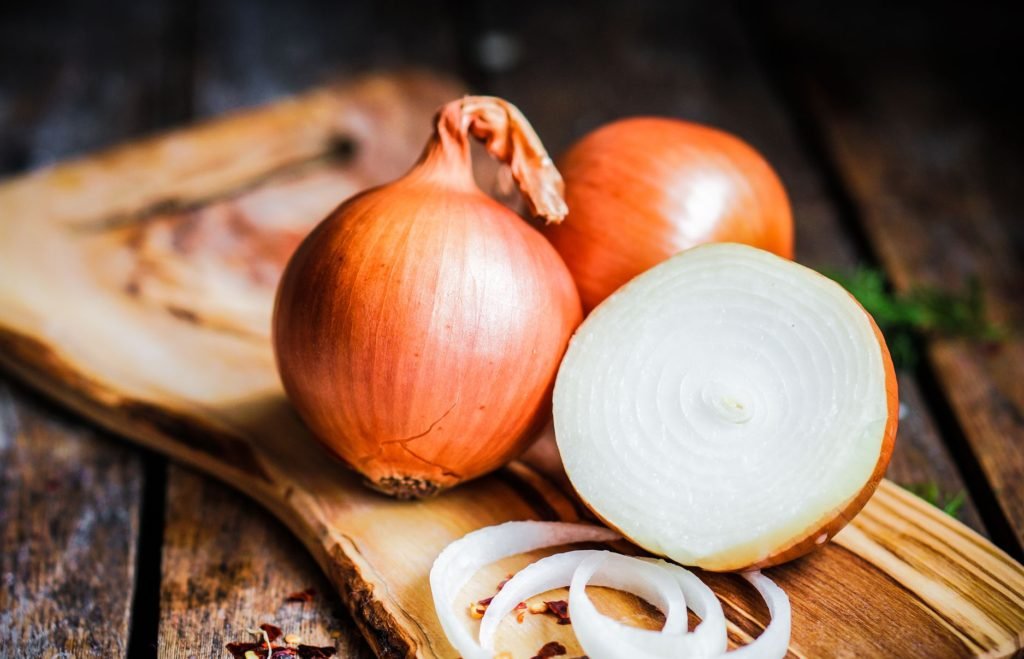Why do onions make you cry? In a recent exploration of the age-old kitchen conundrum, scientists shed light on why chopping onions brings tears to our eyes.
According to Dr. Abbey Thiel, a food scientist and popular YouTube personality, onions deploy a defense mechanism akin to several other plants.
Why onions make you cry
Bryan Quoc Le, a faculty research fellow at Pacific Lutheran University, delves into the chemical intricacies at play.
When an onion is sliced, an enzyme reacts with an amino acid, generating sulfur compounds.
Also read: What are the benefits of eating onions?
These compounds then combine with another enzyme, releasing vapors that waft towards the eyes.
The Tearful Response
Le explains that upon contact with the moisture in our eyes, these vapors produce trace amounts of sulfuric acid.
This acid irritates the cornea, prompting tears as a protective mechanism.
Tips to Prevent Onion-Induced Tears
1. Utilize Ventilation:
Place a fan nearby to disperse the irritating molecules away from your eyes.
2. Protective Eyewear:
Wear goggles to shield your eyes effectively during onion chopping sessions.
3. Chill the Onion:
Store the onion in a freezer or ice-filled bowl prior to chopping to minimize vapor release.
4. Microwave Technique:
Briefly heat the onion in the microwave to reduce the emission of vapors.
5. Acidic Intervention:
Add lemon or vinegar to the onion to slow down the enzyme reaction.
6. Illuminating Solution:
Light candles nearby to potentially mitigate the effects of the onion vapors.
7. Mouthguard Method:
Hold a piece of bread or toast in your mouth while chopping to absorb the irritating vapors.
By employing these strategies, kitchen enthusiasts can minimize the tear-inducing effects of onions, ensuring a more pleasant culinary experience.
Onions are among the world’s oldest cultivated plants. They were probably known in India, China, and the Middle East before recorded history.
